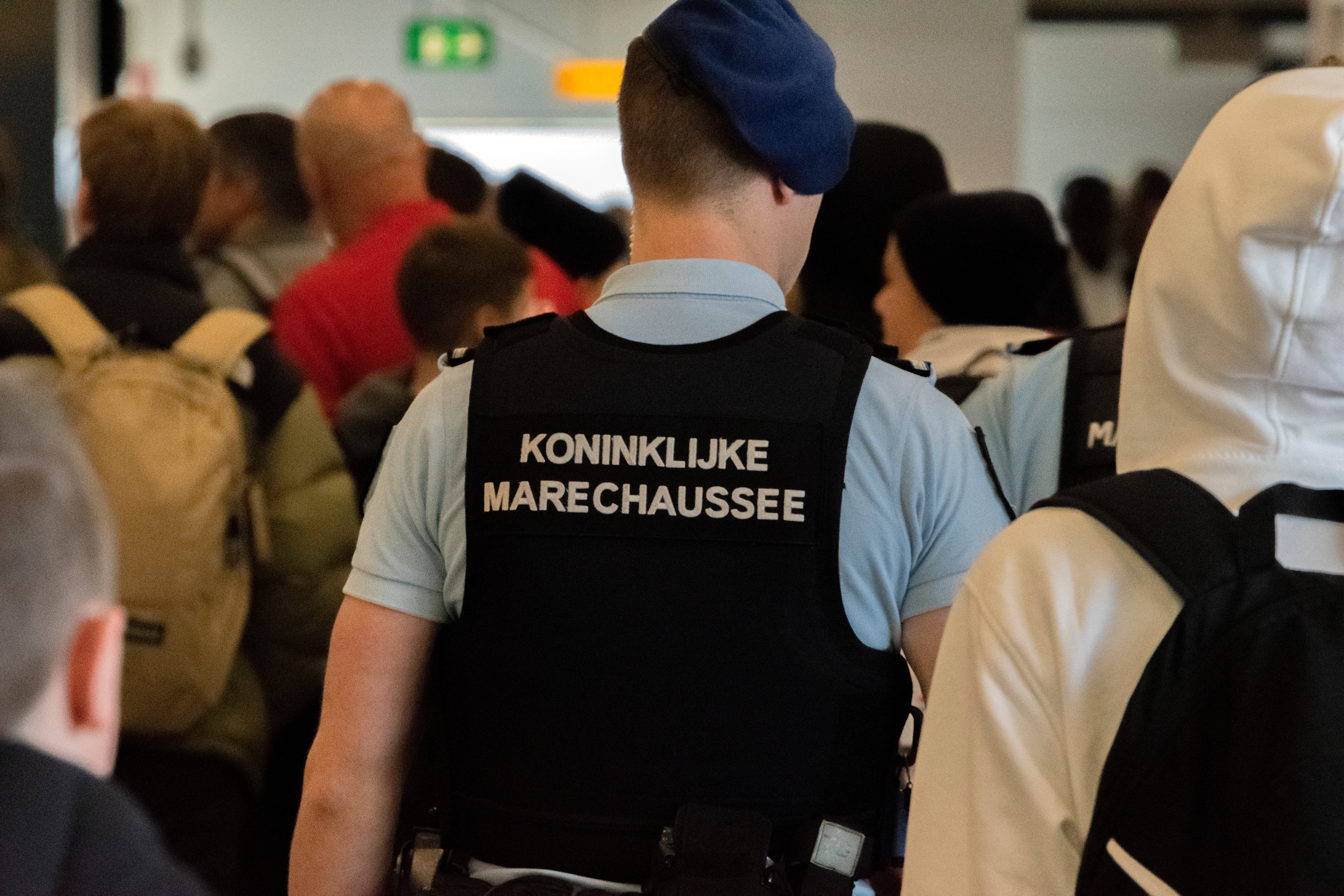
You report to the Royal Netherlands Marechaussee
Have you arrived in the Netherlands at Schiphol Airport, another airport or at a port? And do you want to apply for asylum in the Netherlands, but are not allowed to enter the Netherlands? Then report to the Royal Netherlands Marechaussee (KMar) and tell them you want to apply for asylum in the Netherlands.
You sign your asylum application
After you have reported to the
Your name, date of birth and nationality
KMar takes pictures of you and takes fingerprints from you.
KMar searches your clothes and luggage and may confiscate your phone or other items to search. You will get proof on paper if KMar seizes documents or belongings from you. Make sure you keep this paper. You can retrieve these things later with the paper.
KMar asks questions about your travel itinerary. Whether you have previously applied for asylum in the Netherlands or another European country. And whether you have family members in the Netherlands.
After the KMar collects all this information from you, you sign your asylum application. This is called the M35H form. Now you have officially applied for asylum in the Netherlands.
You get a special asylum procedure because you apply for asylum at the border of the Netherlands
Are you younger than 18 and coming to the Netherlands on your own? Then you will not enter the border procedure. You will also usually not enter this asylum procedure at Schiphol if you came to the Netherlands with your family with children under 18. And you will not enter the border procedure if the IND thinks you are too vulnerable to handle your asylum application in the border procedure. This could be if you have mental problems or have been the victim of (sexual) violence. You will receive the general asylum procedure in these cases and will be taken to the application centre in Ter Apel.
These are the differences between the border procedure and the general asylum procedure
There are two major differences between the Border Procedure and the General Asylum Procedure.
During the border procedure, you stay in a closed reception centre. After your registration with the KMar, you go to a closed reception location. This is near Schiphol Airport. This location is called the
The Border Procedure usually takes less time than the General Asylum Procedure.
In the Border Procedure, the Immigration and Naturalisation Service (IND) must make a decision within 28 days. In the General Asylum Procedure, it can take months before you have an initial interview with the IND. Therefore, the Border Procedure usually takes a lot shorter than the General Asylum Procedure. Sometimes the IND does not succeed in making a decision in the Border Procedure within 28 days. If that is the case, you will still be moved from the closed reception centre to an asylum seekers' centre. Your asylum application will then be further processed in the General Asylum Procedure.